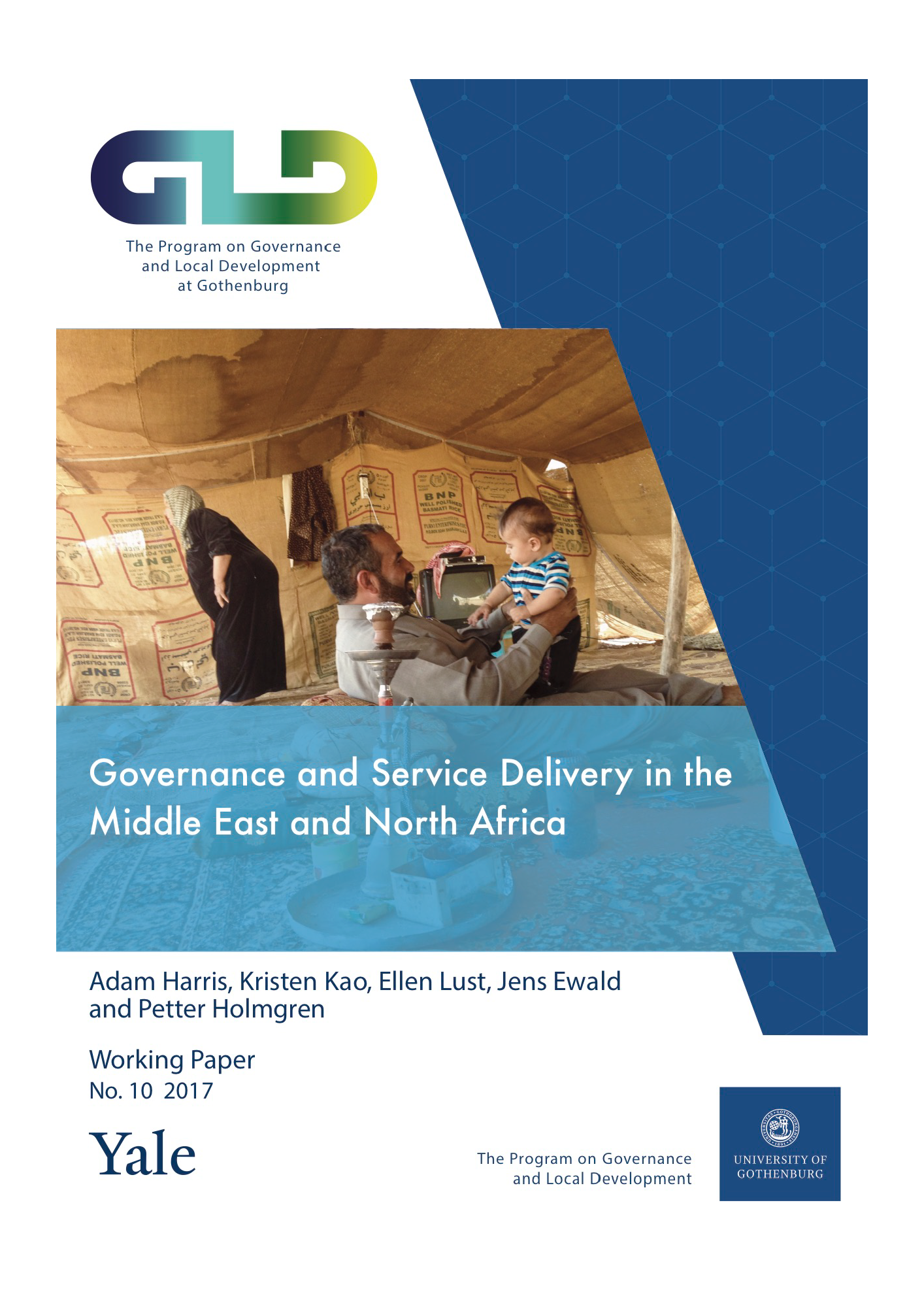No.10 Governance and Service Delivery in the Middle East and North Africa
Adam Harris, Kristen Kao, Ellen Lust, Jens Ewald and Petter Holmgren
Abstract
This paper explores the clientelistic equilibrium that remains prevalent in much of the Middle East and North Africa (MENA) region during the post-independence period, undermining service delivery and creating inequality in access. Political institutions and social practices that shape incentives for policymakers, service providers, and citizens create what can be called a potentially tenuous, “clientelistic equilibrium.” Service delivery is influenced by political institutions that allow for the capture of public jobs and service networks, and by social institutions that call upon individuals to respond more readily to members of their social networks than to others. The result is poor quality service delivery (e.g., absenteeism, insufficient effort), difficulties in access (e.g., need for bribes, connections), and inequalities in the provision of services.
In this paper, our primary goal is to describe the relationship between clientelism and personal connections, focusing on the MENA region. We draw upon existing studies and surveys (e.g., the Arab Barometer) of service provision in the MENA, but focus particularly on findings from surveys that researchers affiliated with the Program on Governance and Local Development (GLD) have conducted in Egypt, Jordan, Libya, and Tunisia since 2011. (Sources are outlined in Appendix A.) We begin with a discussion of the dominance of personal networks and clientelistic exchanges in service delivery in the MENA. We then describe the empirical relationships observed in our data with regards to the importance of personal connections in obtaining services and the inequalities that emerge.
